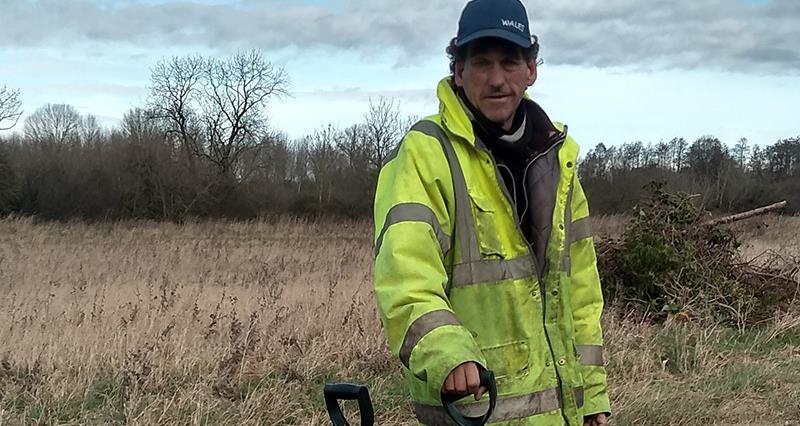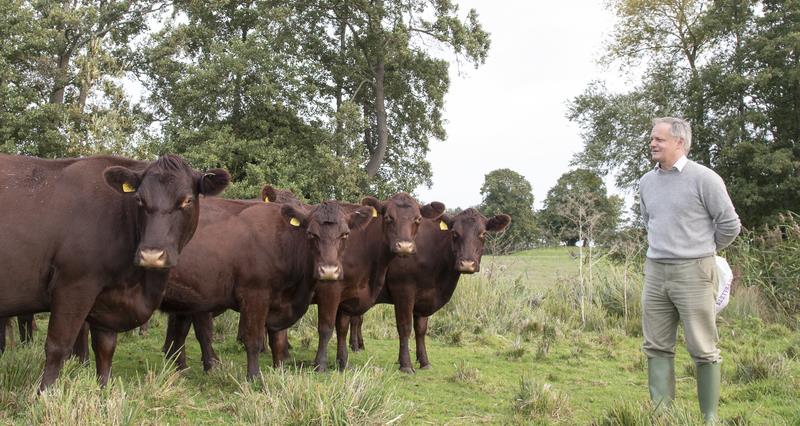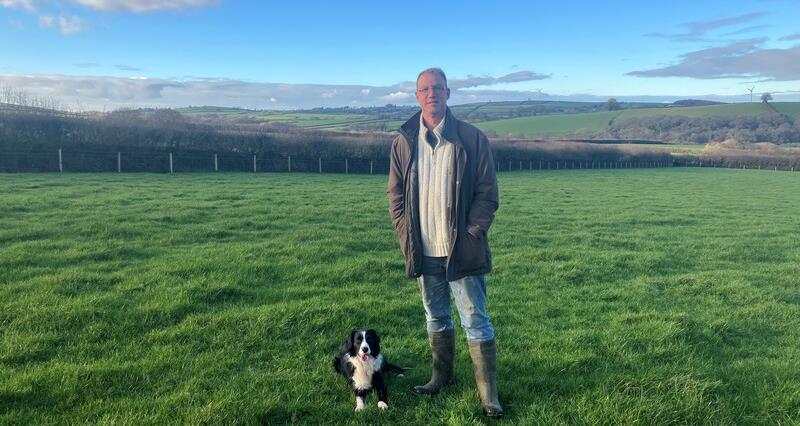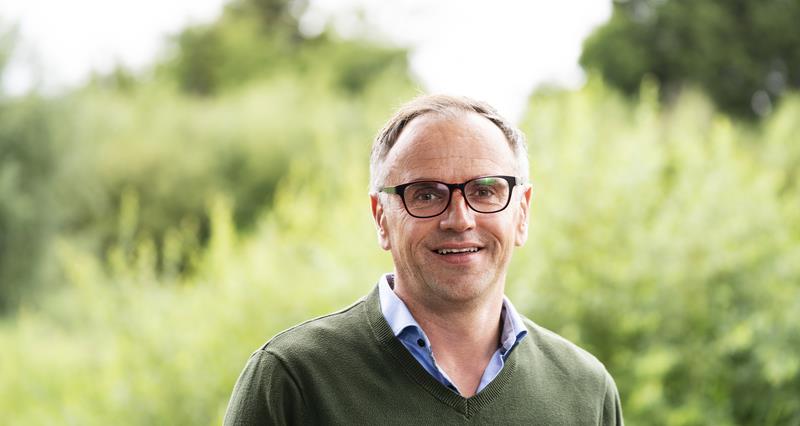Twelve years ago, we stopped using inorganic fertiliser and instead have been using a combination of treated sewage cake and green compost. We previously had a herd of 200 Red Poll cattle, a breed which suits our land.
We now have around 35-40 red polls which are conservation grazing and as an added benefit, we’re seeing better quality meat produced at a lower cost. It has a good story behind it, which also helps to sell the beef.
We have an ongoing programme of hedgerow reinstatement and restoration. Last winter, we planted over 6000 hedge plants with the help of ‘We are Possible’ and a group of willing volunteers. As these grow, they’ll encourage the return of wildlife, store carbon and improve our biodiversity.
Alongside the River Gowy which flows through our farm, we have used traditional willow spiling to strengthen the riverbank as well as to offer a home for wildlife.
Managing a mix of climate friendly measures
Huw's climate friendly actions:
- Improving cattle productivity through feed efficiency and reducing inputs.
- Increasing carbon sequestration through hedgerows.
- Installing renewable energy sources to cut costs.
We are signed up to the Countryside Stewardship Scheme under which we are growing 5 hectares of low input spring barley. With increased costs included in arable production, we are now simply mowing, baling and wrapping the entire crop and using it for cattle feed and bedding, thereby reducing our inputs and fuel use. In addition, we grow 2.5 hectares each of pollen and nectar mix, as well as winter bird seed mix.
At the end of their useful life, these crops are also mowed and baled to provide bedding and feed for cattle, reducing our need for purchased straw.
Part of our work on farm includes managing peat wetlands. We have implemented strategic ditching and wet areas with six new ponds created over the previous few years. We have also added a few scrapes and they have been really successful in attracting lots of wildlife and birds.
For renewable energy, we have 20 hectares of poplar plantations to produce timber for biomass. We have recently installed arrays of solar panels on our farm buildings to provide much of our electricity needs and to reduce our GHG (greenhouse gas) footprint.
We also have plans to install a small-scale hydroelectric plant on the river to produce renewable energy on farm, although a combination of Brexit, Covid and bureaucracy has forced us to put the plans on hold for the time being.
Many of the climate-friendly actions that Huw has taken to improve his GHG footprint and business resilience can be found in the NFU Livestock Resilience Plan.
Climate-friendly farming is good for business; it can help members achieve better market access, cost reductions, business resilience and consumer approval, alongside reducing greenhouse gas emissions.
The sector resilience plans set out in one place what could be achieved based on what the NFU is asking the government to do for farmers and growers.
Each sector is defining its own priorities, highlighting the member benefits and associated challenges, alongside the support needed from government, industry and R&D for increased uptake of climate-friendly farming practices.




